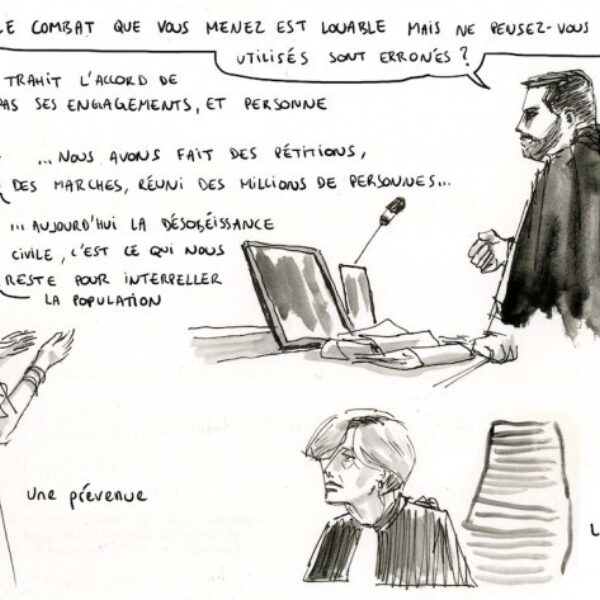
Climate Change and Civil Disobedience – Ruling from the Criminal Court of Lyon
In a ruling handed down on 16 September 2019, the Criminal Court of Lyon acquitted two people accused of removing the portrait of the President of the French Republic from the Town Hall of Lyon (which did not sue for damages).
The two accused are “climate” activists who believe that “the use of legal channels and warnings from scientists have not provided sufficient leverage, and they believe that raising public awareness in order to bring about policy change must be achieved through acts of ‘non-violent civil disobedience’”.
The Court’s reasoning is unprecedented. It is very eloquent, so we shall merely repeat the most striking extracts from this ruling, leaving it to you to draw your own conclusions.
Firstly, the Judge stated that “climate change is a constant factor that seriously affects the future of humanity by provoking natural disasters that the poorest countries do not have the means to protect themselves against and by stirring up violent conflicts between populations, but that also affects the future of our flora and fauna by modifying their living conditions, without giving species the necessary time to adapt and evolve; whereas FRANCE has undertaken internationally and domestically, essentially according to three indicators, to comply with objectives that undoubtedly appeared insufficient to the government, but at least necessary to limit inevitable climate change to an extent that is bearable for life on earth, but that the documents submitted by the defence indicate that these objectives will not be met.”
The Judge then continued his reasoning, stating that “faced with the State’s failure to comply with objectives that could be perceived as minimal in a vital area, the means of expression of citizens in a democratic country cannot be limited to voting at election time, but other forms of participation must be invented within the context of our duty of critical vigilance.”
Finally, further expanding on the nature of the relationship between the State and its citizens, the Judge concluded that “in the minds of citizens deeply involved in a specific general interest cause, taking down and removing this portrait without authorisation, with the exclusive aim of defending this cause, an act not preceded or accompanied by any other form of reprehensible action, far from amounting to a simple attack on the physical object, must be interpreted as the necessary substitute for the unworkable dialogue between the President of the Republic and the people.”
Are you interested in the topic of civil disobedience? Come and take part in the event “Law and/or Civil Disobedience” on 17 October in Flagey: www.equalday.eu
Associated areas of specialisation: Day-to-day life at EQUAL